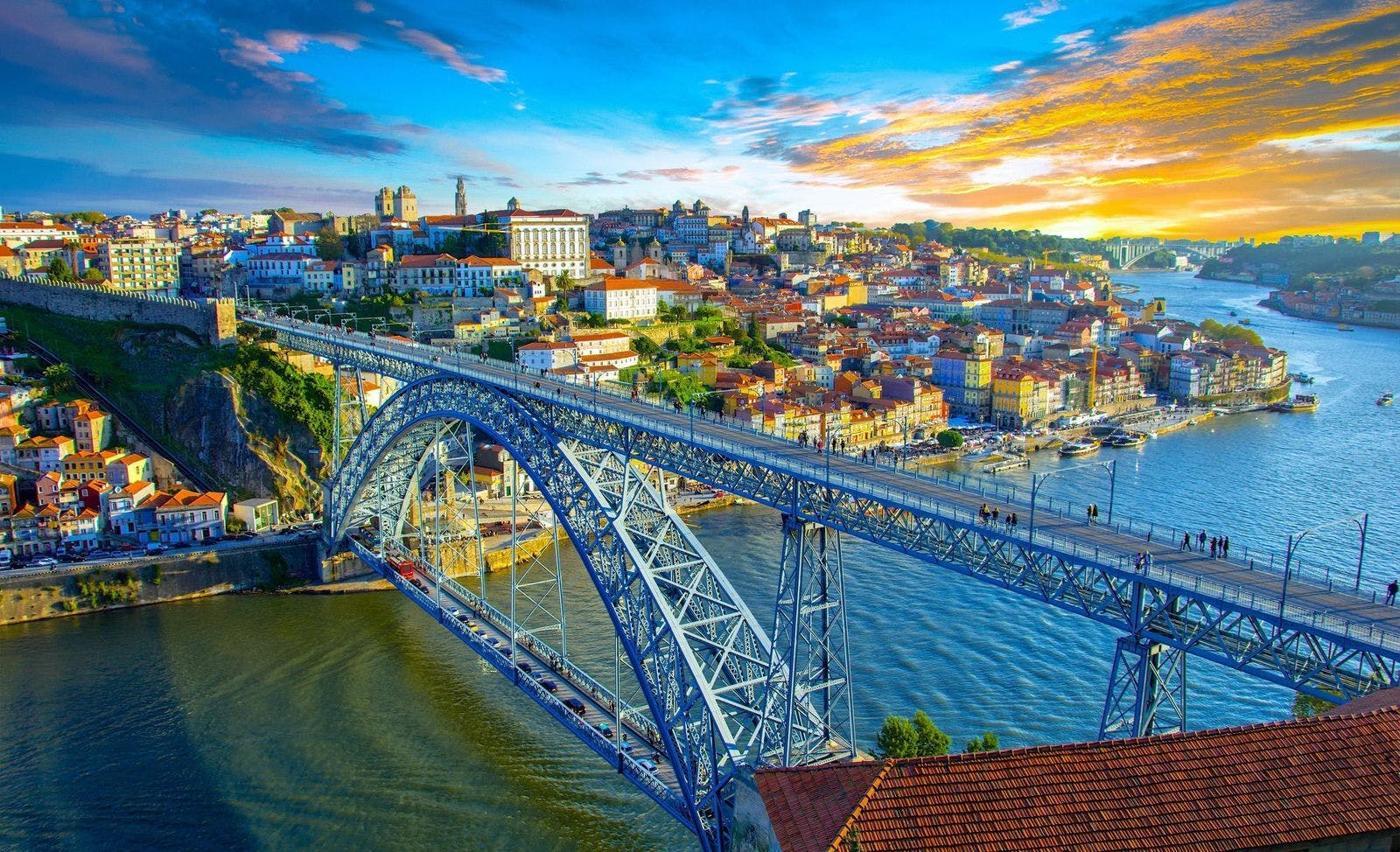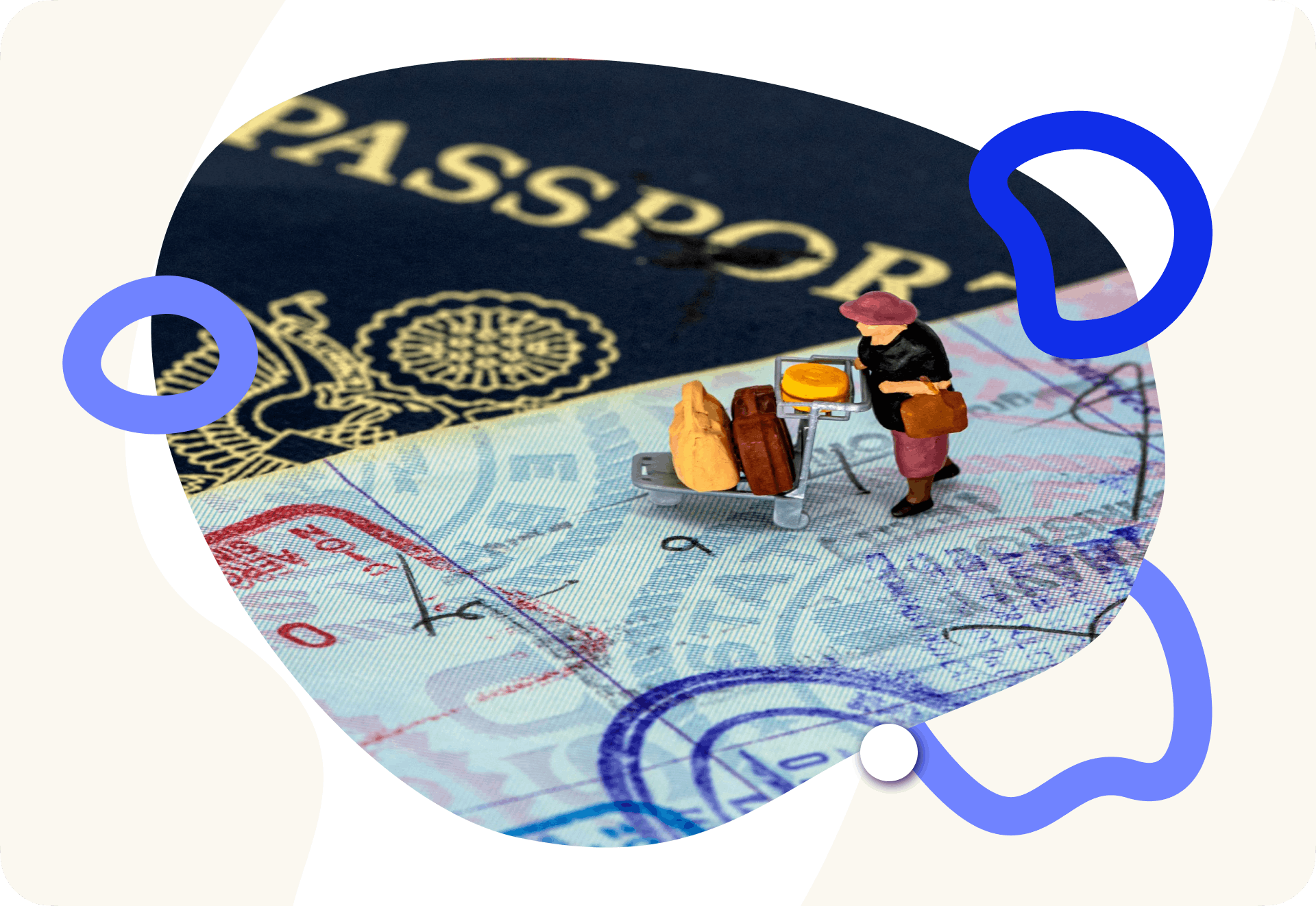Portugal is an enticing location for many businesses looking to expand their global market thanks to its affordable housing, appealing climate and easy pace of life. If your business is growing in Portugal and looking for international employees, you need to understand how to help your workers with Portuguese work permits and visas. This short primer provides an overview of the application process and what you need to do to support your employees.
Who needs a visa to work in Portugal?
There are different rules surrounding who needs a Portuguese work permit based on an individual’s country of origin.
EU/EFTA citizens
Citizens from the European Union or European Free Trade Association (EFTA) do not need a work permit or visa to visit, live in, or work in Portugal. These citizens are allowed to freely travel and work across the European Union. However, if they want to live in Portugal for more than 90 days, they will need a Residence Certificate (Certificado de Registo).
Non-EU/EFTA citizens
Third country nationals (non-EU/EFTA citizens) will need permission to live and work in Portugal. For this to happen, the following conditions must be met:
- Employment offer: Individuals must have a formal job offer from an employer.
- Work visa: There are several categories of work visas. These allow employees who are third-country nationals to enter Portugal and stay there until they can apply for a residence permit. There are several countries whose citizens can enter Portugal and stay for up to 90 days without a visa.
- Residence permit: This allows employees to live and work in Portugal long-term. Individuals apply for this at the Portuguese Immigration and Borders Service (SEF).
An important regulation that employers need to remember is that all new job openings must be advertised to EU/EFTA citizens for at least 30 days. After that time, if the job is not filled, the Institute of Employment and Vocational Training in Portugal (IEFP) will allow employers to fill the job with a non-EU citizen.
Types of Portuguese work visas
When employing non-EU/EFTA nationals, there are generally two main visa categories that employers should be familiar with:
Temporary stay visa (up to 12 months)
A temporary stay visa allows entry and stay in Portugal for less than one year. It is valid during the entire stay, allows for multiple entries and applies to various types of workers, including:
- Skilled employees
- Self-employed and freelance workers
- Academic or scientific researchers
- Seasonal workers
- Professional trainees or volunteers
Fee
The fee for processing a residency national visa application is EUR 75. With the following exemptions:
Processing time
The deadline to decide on a temporary stay visa application is 30 days.
Residency visa (more than 12 months)
A residency visa allows for two entries into Portugal and is valid for a period of 4 months. During that time, the holder of a residency visa is required to request a residency permit with the Immigration and Border Services (SEF). It applies to various types of workers including:
- Skilled employees
- Self-employed and freelance workers
- Academic or scientific researchers
- Seasonal workers
- Professional trainees or volunteers
Fee
The fee for processing a residency national visa application is EUR 90. With the following exemptions:
Processing time
The deadline to decide on a resident visa application, except in circumstances stipulated by law, is 60 days.
How does one apply for a work visa?
According to your nationality and/or country of residency, refer to the Portuguese consular list on where to submit the visa application.
Residence permits to work in Portugal
There are four types of residence permits in Portugal: work, study, family reunification, and medical care/military service. These visas allow third-country nationals to stay in Portugal for up to two years. They can then be renewed for three years. After five years of living in Portugal, visa holders have the option to apply for permanent residency.
These are the most common types of (work) residence permits:
Residence permit for employed workers
This is the most common type of residence permit in Portugal and will apply to most employees. An employee's residence permit in Portugal is valid for two years and can be renewed for an additional three years. After that five-year period, an employee can apply to be a permanent resident or citizen of Portugal.
Residence permit for highly qualified activity
If you employ certain types of workers, they may qualify for residency visas for highly qualified workers. The European Commission places highly qualified activities in two groups:
- Management positions: Business executives, senior administrative officers, directors, administrative and commercial managers.
- Intellectual and scientific activities: Engineers, scientists, teachers, health professionals, cultural professionals, legal experts, and business and management professionals.
Permits for highly qualified workers are valid for two years and can be renewed for three additional years.
Residence permit for highly qualified activity in certified companies – Tech Visa
The “Tech Visa” program offers an effective and efficient process for granting residence visas and permits for highly qualified immigrants recruited by companies who work in areas of technology and innovation.
To qualify for this type of visa program, your business must be certified by IAPMEI. Once issued, this type of permit is valid for two years and can be renewed for successive periods of three years.
Residence permit for highly qualified activity – EU Blue Card
The EU Blue Card is the equivalent of the Green Card in the United States. It is a special work and residence permit for non-EU nationals designed to attract individuals with sought-after skills and adequate education.
To qualify for an EU Blue Card in Portugal, an individual must:
- Be a non-EU citizen
- Be educated or have desirable professional experience
- Have an employment contract or binding employment offer from a business within Portugal
EU Blue Cards are initially valid for one year. They can be renewed for successive periods of two years. With a Blue Card, a person can work in 24 of the 27 EU member states. After living in Portugal for 18 months, a Blue Card holder can apply for a residence permit for highly skilled workers.
How much do permits cost?
See this table with fees.
How does one apply for a residence permit in Portugal?
Residence permits are issued through the Serviço de Estrangeiros e Fronteiras (SEF) Depending on the residence permit, appointments may be given out when applicants receive their visa. Otherwise, appointments need to be scheduled with the SEF directly.
How long are residence permits valid?
Residence permits for work allow employees to live and work in Portugal for one to two years. After that, they can renew the permit as long as they still have valid employment or a valid job offer from an employer.
After five years, they are eligible to apply for permanent residency.
Residence permit renewal
All applications for residence permit renewal are done online through the SEF website. It requires the same documentation as the original application, as described above.
The bottom line
Need help navigating the immigration process in Portugal when hiring non-EU nationals? Our team of experts would be happy to help. Let’s talk!

